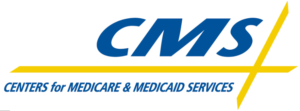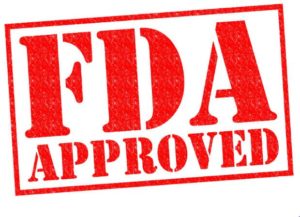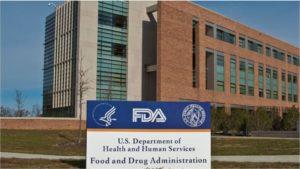- State lab has plenty of capacity to test under status quo, not for widespread ‘surveillance;’ antibody tests coming soon (thenevadaindependent.com)
Though the Nevada State Public Health Laboratory has enough resources to continue testing at current levels, its capacity remains well below the level needed to conduct widespread disease surveillance to keep the spread of the novel coronavirus under control as governments begin easing restrictions on citizens, lab director Dr. Mark Pandori said...the lab is planning to bring additional equipment online in mid-May that could allow the lab to quadruple its current ability to test...“If we were to quadruple our throughput here at this lab and several other labs then we would be approaching a moment when we could start to screen well beyond just contacts of known cases and symptomatic people,” Pandori said...READ MORE
- Retail scripts of vaccines, acute drugs decline sharply amid COVID-19 pandemic (fiercepharma.com)
Prescriptions for vaccines are suffering materially during the COVID-19 pandemic...It’s understandable that retail prescriptions of drugs have declined since COVID-19 hit the U.S., as patients refrain from visiting physicians. But still, some drugs are suffering terribly, while others appear to be holding steady...total prescriptions for drugs for acute use have plummeted by 28% since February...vaccines saw the most decline, probably because people stopped going to public spaces to address a disease they don’t even have...the autoimmune market, HIV and anticoagulants have so far experienced no impact...READ MORE
- The Latest CMS Outlook for Drug Spending—And How COVID-19 Will Change It (drugchannels.net)
...the Centers for Medicare & Medicaid Services recently released their new projections for U.S. National Health Expenditures. Unfortunately, the coronavirus almost immediately made these predictions obsolete...It’s still useful to analyze these forecasts for a pre-pandemic examination of U.S. healthcare spending. A few highlights of the 2024 outlook: READ MORE
- Total U.S. spending on healthcare was projected to grow, from $3.6 trillion in 2018 to $5.0 trillion in 2024.
- Spending on hospitals and professional services was expected to grow by a combined $800 billion—more than 60% of CMS’s projected $1.4 trillion increase in U.S. healthcare spending. That’s consistent with historical trends.
- Net spending on outpatient prescription drugs in 2024 was projected to shrink to less than 9% of total U.S. spending. That would be its lowest level since 2000.
- This Week in Managed Care: April 10, 2020 (ajmc.com)
This week, the top managed care news includes a report on how CDC lacks data to tell the full story on disparities in the COVID-19 pandemic, Medicare Advantage gets a pay bump amid COVID-19 rule changes, and the nation’s top infectious disease expert speaks with the editor-in-chief of JAMA.
- Buy American Proposals Rile Manufacturers and Trading Partners (pharmtech.com)
Drug manufacturers, distributors, and dispensers oppose Buy American policies as likely to reduce reliable supplies and raise product costs...Efforts to shift more production of pharmaceuticals and APIs to the United States as a strategy for reducing drug shortages and ensuring access to needed medicines...The recent $2-trillion COVID economic stimulus legislation...supports exploration of federal “Buy American” policies, ostensibly to reduce US dependence on drugs and medical products imported from overseas...READ MORE
- FDA clears wave of foreign manufacturing plants as COVID-19 concerns continue to grow (fiercepharma.com)
U.S. eyes have turned abroad as the coronavirus crisis raises concerns about the safety of the global drug supply. In moves that could shore up confidence, the FDA has given a trio of overseas generics plants the all-clear to produce...Lupin Pharmaceuticals, Dr. Reddy's Laboratories and Biocon all received clean FDA reports at manufacturing facilities in India and Malaysia...With the novel coronavirus pandemic continuing its march, focus has turned to the stability of the supply chain, including for generic medicines...READ MORE
- ASHP Urges Action to Address Shortages of Supportive Ventilation Medications (drugtopics.com)
...in the letter, Abramowitz explained that, although ASHP is grateful for the action the Administration has taken to provide hospitals with necessary personal protective equipment and ventilators, they “will be rendered useless without an adequate supply of the medications…that must administered concomitantly with mechanical ventilation in critically ill patients…to ensure the successful use of this life-saving supportive care.”...Medications used in conjunction with ventilator include opioids, sedatives, and paralytics...This week, the Drug Enforcement Administration announced it will take additional steps to allow for the increased production of controlled substances used in COVID-19 care...READ MORE
- Coronavirus demand causes shortages of key hospital anesthetics, painkillers (fiercepharma.com)DEA takes additional steps to allow increased production of controlled substances used in COVID-19 care (dea.gov)
The novel coronavirus has put an enormous strain on the pharmaceutical supply chain, with spot shortages of certain meds increasingly common. Now, with thousands of COVID-19 patients flooding U.S. hospitals, drugs used during treatment and ventilation are growing scarce...Increased demand for drugs used in hospitals as painkillers and surgical anesthetics for patients with COVID-19 have sapped supply, potentially threatening access for months...the FDA posted updated shortages of anesthetics propofol and midazolam, citing increased demand. For generic propofol, produced by a number of manufacturers, a resupply could occur as late as October...READ MORE
- Why supply chains are a critical force in a global pandemic (pharmamanufacturing.com)
As we’ve seen with COVID-19, the response speed of supply chains is critical in helping slow down and even prevent the total number of casualties in a global health emergency. The sooner solutions can be assembled — whether it is a hospital being built or getting PPE into the hands of medical teams — the sooner people can be treated and the less spread that occurs...A model simulation cited in Nature shows that, “…if China had implemented its control measures a week earlier, it could have prevented 67 percent of all cases in the country. Implementing the measures three weeks earlier...would have cut the number of infections to 5 percent of the total.” Similarly, Italian officials estimate that if they had acted 10 days sooner, they could have avoided tens of thousands of fatalities. Supply chains play an important role in implementing response measures and building out a local healthcare system’s capacity...READ MORE
- A key ingredient that compound pharmacies need for hydroxychloroquine skyrockets in price (statnews.com)
As global demand intensifies for an old malaria drug that some believe can combat Covid-19, a distributor that supplies the key active pharmaceutical ingredient to compound pharmacies in the U.S. has raised prices by huge amounts over the past week...Spectrum Chemical boosted the wholesale price for a 100-gram container of hydroxychloroquine sulfate by about 350%, to approximately $1,160, while a 1,000-gram container jumped 230% to $5,932. And the price for a 5,000 gram container roughly tripled to almost $30,000...Spectrum explained the sudden clamor for the drug has made it more difficult to obtain the active ingredient, sometimes causing its own suppliers to ship partially filled orders or cancel them outright...READ MORE










